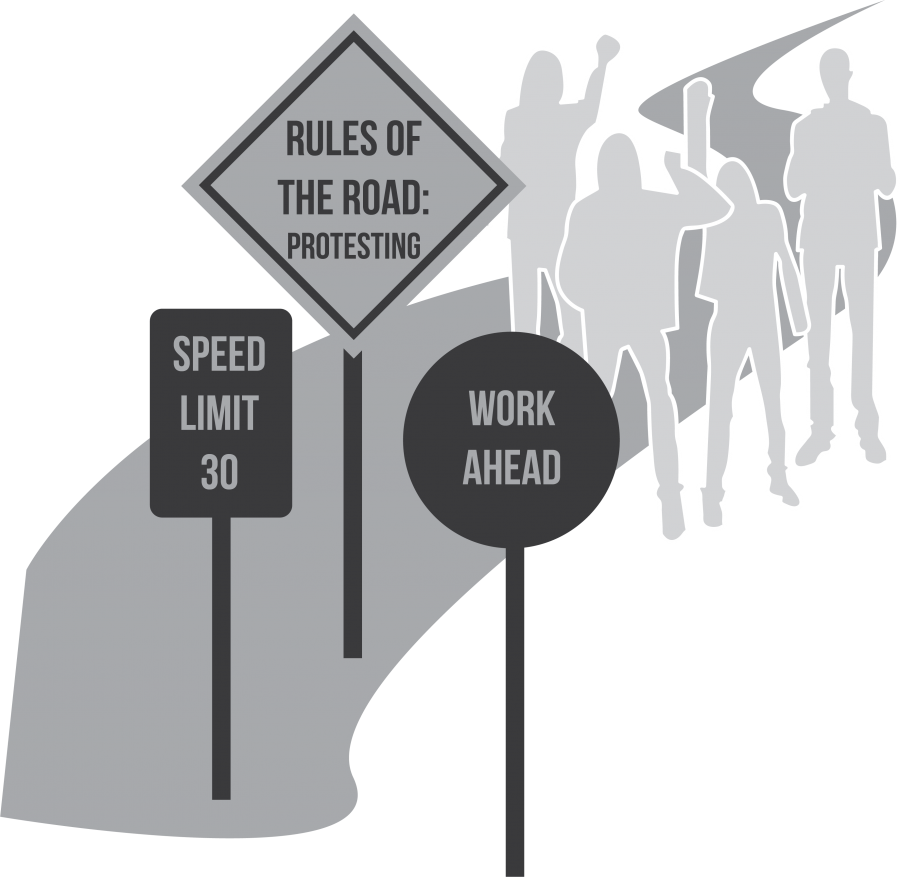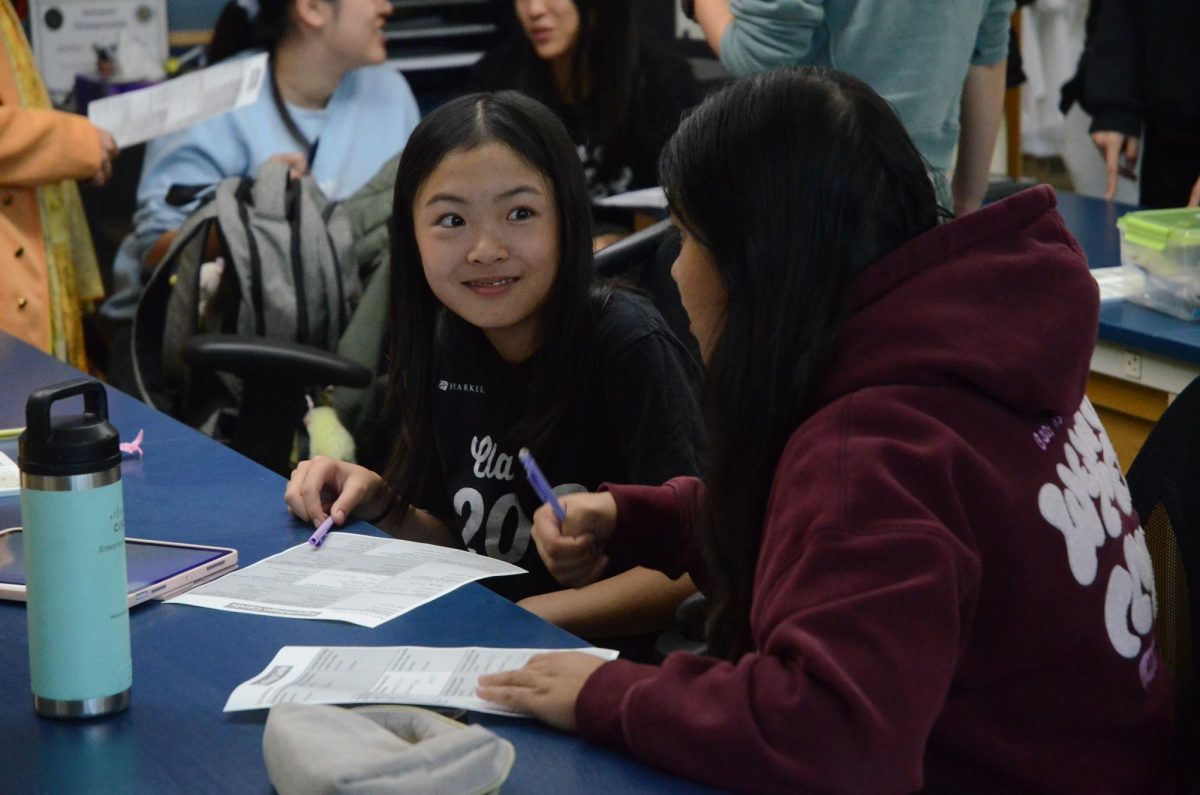Editorial: How to protest
Protests and demonstrations have taken root across the nation. If you’re interested in participating in one, it’s important that you stay safe and demonstrate peacefully, without losing your temper.
January 24, 2017
With the rise of the Internet, it’s become increasingly feasible to organize large protests and marches in a short time frame. In the past few years, groups with a passion and an internet connection have protested the Dakota Access Pipeline, discrimination against the LGBTQ+ community and the treatment of black men by police. Most recently, people nationwide marched to protest Donald Trump’s inauguration.
Protesting is an important part of the democratic process and every citizen’s right as guaranteed by the First Amendment, but effective protesting requires guidelines for how to behave. As Duncan Green, author of a book on protesting, “How Change Happens”, said in an interview with NPR on Thursday, “If you only think about protests, you’re missing half of the action.
Be aware: Protesting, while legal and protected by your first amendment rights, is not risk-free. You could be arrested, assaulted, or stigmatized. Be aware of what protesting means before you commit yourself. Understanding that protesting carries with it the risk of arrest, something that will follow you on college and job application.
Protest Convention: Show up early if asked and follow the guidelines of the organizers of the protest. Know who the group leaders are and where they are in relationship to you. Don’t bring a purse or backpack, and if you bring a banner or flag, remove its metal, plastic or wooden pole.
Stay Peaceful: Protests are legal on the condition that marchers don’t obstruct traffic. Resorting to violence can legitimize your cause. Nonviolent protests should spread awareness to cause action.
Stay Safe: Above all, watch out for yourself. Amidst a crowd of volatile protesters, expect police or anti-protesters to approach you. For anti-protesters, respond calmly and do not escalate the situation to more than a discourse between individuals. For officers, obey all police orders and make sure they can see your hands clearly. If a police officer detains you, remain calm and simply state your purpose unless told otherwise.
Be prepared: Carry a cellphone in your pocket and extra cash in your shoe. After arrested, you may have to forfeit your belongings so keep contact information for support such as a lawyer or someone who can help you written on your skin or clothes or in a place which would not be confiscated during an arrest. Contact your support person immediately after arrest. This may require calling from a phone inside prison so make sure to have spare change to pay for a call.
For Comfort: Dress in layers and comfortable shoes – you’ll likely be walking a lot. Check the weather and dress appropriately. Bring snacks to keep your energy up and water to stay hydrated.
Always remember the main reason you are protesting – to effect change. Change does not occur in the blink of an eye; protesting is one step in the direction for reform.
This piece was originally published in the pages of The Winged Post on January 24, 2017.


















![“[Building nerf blasters] became this outlet of creativity for me that hasn't been matched by anything else. The process [of] making a build complete to your desire is such a painstakingly difficult process, but I've had to learn from [the skills needed from] soldering to proper painting. There's so many different options for everything, if you think about it, it exists. The best part is [that] if it doesn't exist, you can build it yourself," Ishaan Parate said.](https://harkeraquila.com/wp-content/uploads/2022/08/DSC_8149-900x604.jpg)




![“When I came into high school, I was ready to be a follower. But DECA was a game changer for me. It helped me overcome my fear of public speaking, and it's played such a major role in who I've become today. To be able to successfully lead a chapter of 150 students, an officer team and be one of the upperclassmen I once really admired is something I'm [really] proud of,” Anvitha Tummala ('21) said.](https://harkeraquila.com/wp-content/uploads/2021/07/Screen-Shot-2021-07-25-at-9.50.05-AM-900x594.png)







![“I think getting up in the morning and having a sense of purpose [is exciting]. I think without a certain amount of drive, life is kind of obsolete and mundane, and I think having that every single day is what makes each day unique and kind of makes life exciting,” Neymika Jain (12) said.](https://harkeraquila.com/wp-content/uploads/2017/06/Screen-Shot-2017-06-03-at-4.54.16-PM.png)








![“My slogan is ‘slow feet, don’t eat, and I’m hungry.’ You need to run fast to get where you are–you aren't going to get those championships if you aren't fast,” Angel Cervantes (12) said. “I want to do well in school on my tests and in track and win championships for my team. I live by that, [and] I can do that anywhere: in the classroom or on the field.”](https://harkeraquila.com/wp-content/uploads/2018/06/DSC5146-900x601.jpg)
![“[Volleyball has] taught me how to fall correctly, and another thing it taught is that you don’t have to be the best at something to be good at it. If you just hit the ball in a smart way, then it still scores points and you’re good at it. You could be a background player and still make a much bigger impact on the team than you would think,” Anya Gert (’20) said.](https://harkeraquila.com/wp-content/uploads/2020/06/AnnaGert_JinTuan_HoHPhotoEdited-600x900.jpeg)

![“I'm not nearly there yet, but [my confidence has] definitely been getting better since I was pretty shy and timid coming into Harker my freshman year. I know that there's a lot of people that are really confident in what they do, and I really admire them. Everyone's so driven and that has really pushed me to kind of try to find my own place in high school and be more confident,” Alyssa Huang (’20) said.](https://harkeraquila.com/wp-content/uploads/2020/06/AlyssaHuang_EmilyChen_HoHPhoto-900x749.jpeg)











